Table of Contents
Remember the days when Vectra home gym equipment was the gold standard? Sleek designs, club-quality workouts, all within the comfort of your own home. Vectra carved out a niche, offering multi-station gyms that were both space-efficient and incredibly versatile. Founded in 1987, they were known for pioneering high-end compact weight gyms, and consistently received top ratings. But times change. Vectra Fitness ceased manufacturing in 2018, leaving many fitness enthusiasts wondering what happened and what their options are now.
Why Vectra Home Gym Equipment Was a Game Changer
Why Vectra Home Gym Equipment Was a Game Changer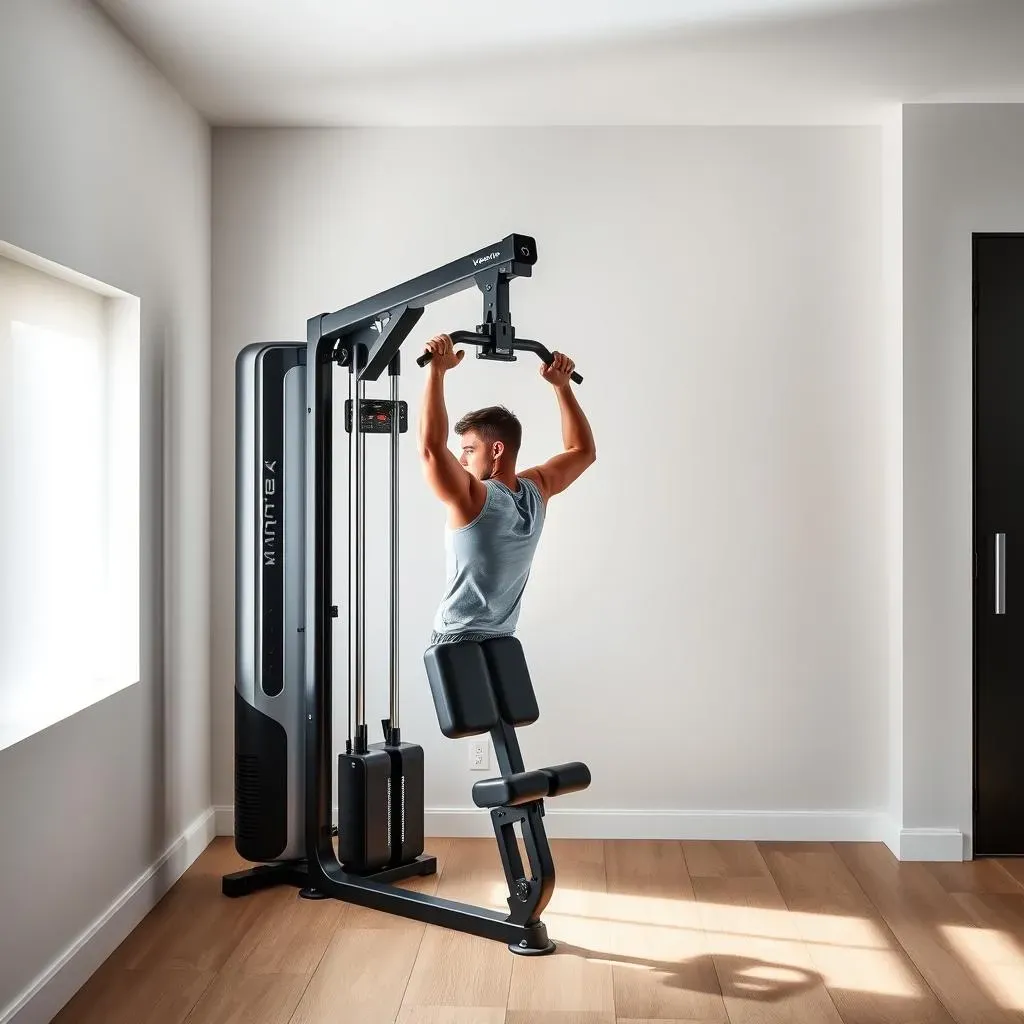
Innovative Design and Engineering
Vectra wasn't just another player in the fitness game; they were innovators. Their engineering team, comprised of mechanical engineers, brought a level of precision and quality that set them apart. They understood the biomechanics of exercise and translated that knowledge into equipment that felt natural and effective.
One of their key innovations was the corner unit design, which maximized space efficiency without sacrificing functionality. This allowed users to perform a wide range of exercises within a small footprint, making it ideal for home use. Vectra's commitment to quality also meant using premium materials and construction techniques, ensuring durability and longevity. Let's be real, nobody wants a wobbly weight machine.
Commercial Quality for the Home Gym
Before Vectra, getting a truly comprehensive workout at home often meant sacrificing quality. Most home gyms felt flimsy and limited in their exercise options. Vectra changed that by bringing commercial health club quality to the home. Their multi-station designs allowed users to perform a wide variety of exercises, targeting different muscle groups, all on a single machine.
This wasn't just about convenience; it was about delivering results. Vectra equipment was designed to provide a smooth, consistent resistance, mimicking the feel of professional gym equipment. This allowed users to train effectively and safely, without having to compromise on their workout experience. No more skipping leg day because your home gym couldn't handle it!
Key Innovations of Vectra:
- Space-saving corner unit design
- Multi-station functionality for diverse workouts
- Commercial-grade quality and durability
- Focus on biomechanics for natural movement
Key Features to Look for in Vectra Home Gym Equipment
Key Features to Look for in Vectra Home Gym Equipment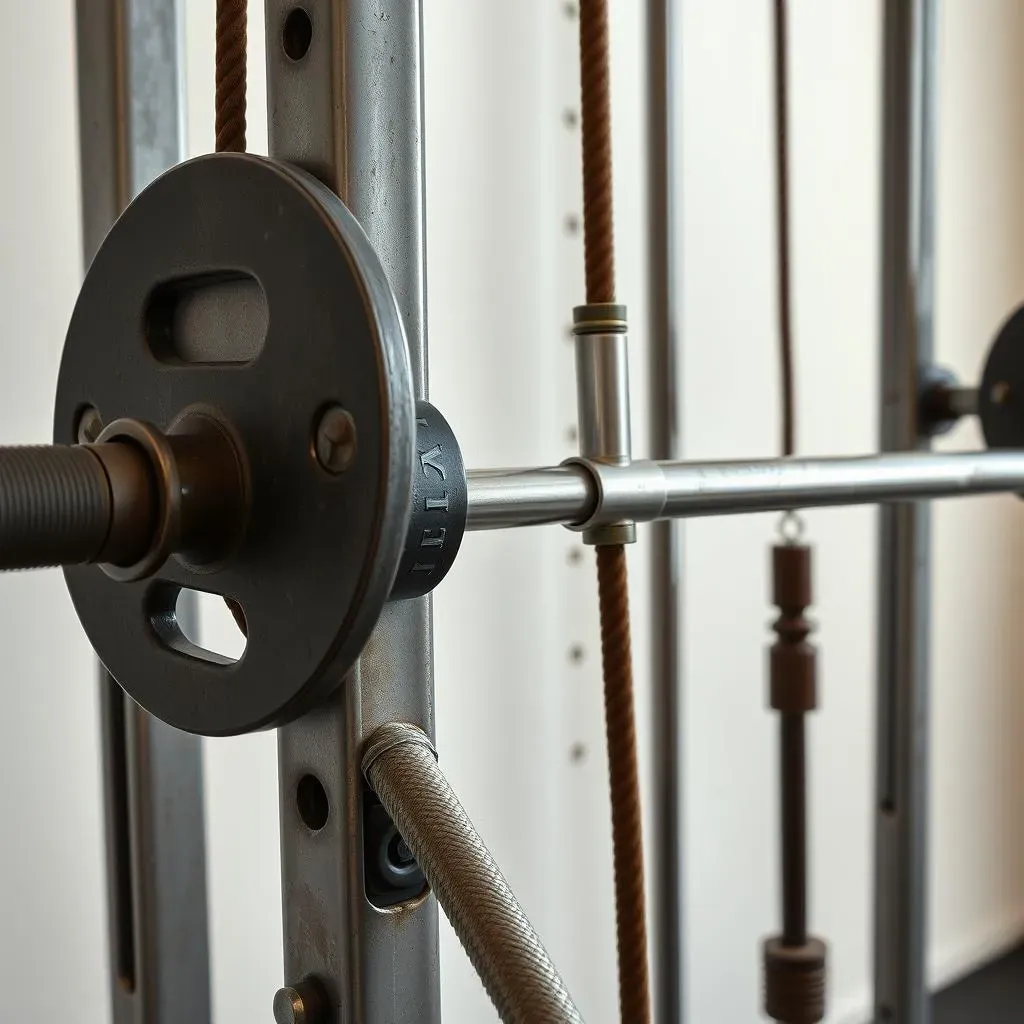
Alright, so you're scoping out Vectra home gym equipment, huh? Smart move. Even though they're not making them anymore, those machines were built to last. But before you jump on the first one you see, let's talk about what to look for. It's all about knowing what made Vectra, *Vectra*. We're talking about build quality, exercise variety, and overall condition. Think of it like buying a classic car – you want something that's been well-maintained and has all the original parts, if possible. You want to make sure you are getting the best out of your money.
Frame and Construction: The Backbone of Your Gym
First things first, check that frame! Vectra was known for its heavy-duty steel construction, so you want to make sure it's solid. Look for any signs of rust, cracks, or welds that look dodgy. A weak frame is a recipe for disaster (and potential injury). Give it a good shake and make sure it feels stable. Also, pay attention to the cables and pulleys. These are wear items, so check for fraying, cracks, or stiffness. Replacement cables are available, but it's always better to start with something in good shape.
Seriously, don't underestimate this. The frame is the foundation of everything. Imagine trying to build a house on a shaky foundation – not gonna end well, right? Same goes for your gym equipment.
Feature | Why It Matters | What to Look For |
|---|---|---|
Frame Material | Durability and stability | Heavy-gauge steel, no rust or cracks |
Cables and Pulleys | Smooth operation and safety | No fraying, cracks, or stiffness |
Upholstery | Comfort and hygiene | No tears, rips, or excessive wear |
Exercise Variety and Functionality
One of the biggest draws of Vectra was the sheer number of exercises you could do on a single machine. Before you buy, make sure all the stations are working correctly. Test out the range of motion and resistance on each exercise. Are the weight stacks smooth and consistent? Do all the adjustments work properly? If something feels off, it's probably a sign of wear and tear (or a potential repair bill). Also, think about your fitness goals. Does the machine offer the exercises you're most interested in? No point in buying a multi-station gym if you're only going to use half of it.
For example, if you're really into chest workouts, make sure the pressing station feels solid and offers a good range of motion. Or, if you're focused on legs, check the leg extension and curl stations. It's all about finding a machine that fits your specific needs.
Maintaining and Repairing Your Vectra Home Gym Equipment
Maintaining and Repairing Your Vectra Home Gym Equipment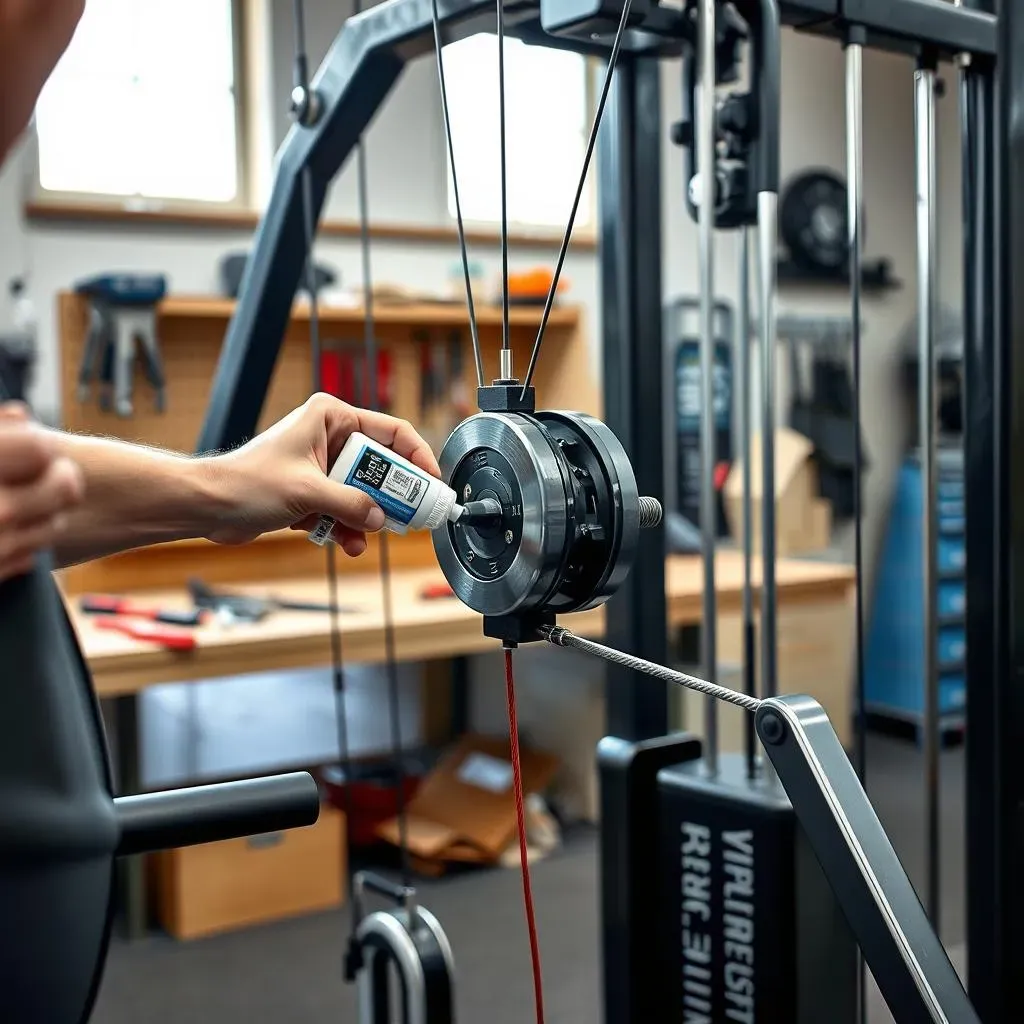
Regular Cleaning and Inspection
Alright, let's talk maintenance. Think of your Vectra home gym equipment like your car. You wouldn't just drive it until it breaks down, right? Same goes for your gym. Regular cleaning and inspection are key to keeping it running smoothly and preventing major problems down the road. Wipe down the upholstery after each use to prevent sweat and bacteria buildup. Seriously, nobody wants to sit in someone else's sweat. And take a few minutes each month to inspect the frame, cables, and pulleys for any signs of wear and tear. A little preventative maintenance can save you a lot of headaches (and money) in the long run.
For cleaning, a simple solution of mild soap and water works wonders. Avoid harsh chemicals or abrasive cleaners, as they can damage the upholstery and frame. And when you're inspecting the cables, pay close attention to the areas where they connect to the weight stacks and pulleys. These are high-stress points and are more likely to show signs of wear. If you spot any fraying or cracking, replace the cable immediately. Safety first!
Cable and Pulley Maintenance
Speaking of cables and pulleys, these are probably the most important parts to maintain on your Vectra gym. Cables stretch and fray over time, and pulleys can become worn or seized. This not only affects the smoothness of your workouts but can also be a safety hazard. Regularly lubricate the pulleys with a silicone-based lubricant to keep them spinning freely. And if you notice any stiffness or grinding, it's time to replace them. Fortunately, replacement cables and pulleys are readily available online.
When replacing cables, make sure you use the correct type and length. Vectra used specific cables for each machine, so check your owner's manual or contact a fitness equipment supplier to ensure you're getting the right parts. And when installing the new cables, be sure to follow the manufacturer's instructions carefully. Proper cable tension is crucial for smooth operation and preventing premature wear.
Addressing Common Repairs and Issues
Even with the best maintenance, things can still go wrong. Here are some common Vectra home gym equipment repairs and how to address them. Weight stacks sticking? This is usually caused by friction between the weight plates. Try lubricating the guide rods with a silicone-based lubricant. Upholstery torn or ripped? You can either repair it yourself with a vinyl repair kit or have it professionally reupholstered. Cables snapping? Replace them immediately! And if you're not comfortable doing the repairs yourself, don't hesitate to call a qualified fitness equipment technician.
One thing to note: Vectra Fitness is no longer manufacturing equipment, so finding original replacement parts can be tricky. However, many aftermarket suppliers offer compatible parts that are just as good (or even better) than the originals. Do your research and read reviews before buying any replacement parts. And remember, a little bit of elbow grease can go a long way in keeping your Vectra gym in top shape for years to come.
Issue | Possible Cause | Solution |
|---|---|---|
Weight stack sticking | Friction between weight plates | Lubricate guide rods |
Torn upholstery | Wear and tear | Repair with vinyl kit or reupholster |
Snapped cable | Overuse or damage | Replace immediately |
Vectra Home Gym Equipment Alternatives: What's on the Market Today?
Vectra Home Gym Equipment Alternatives: What's on the Market Today?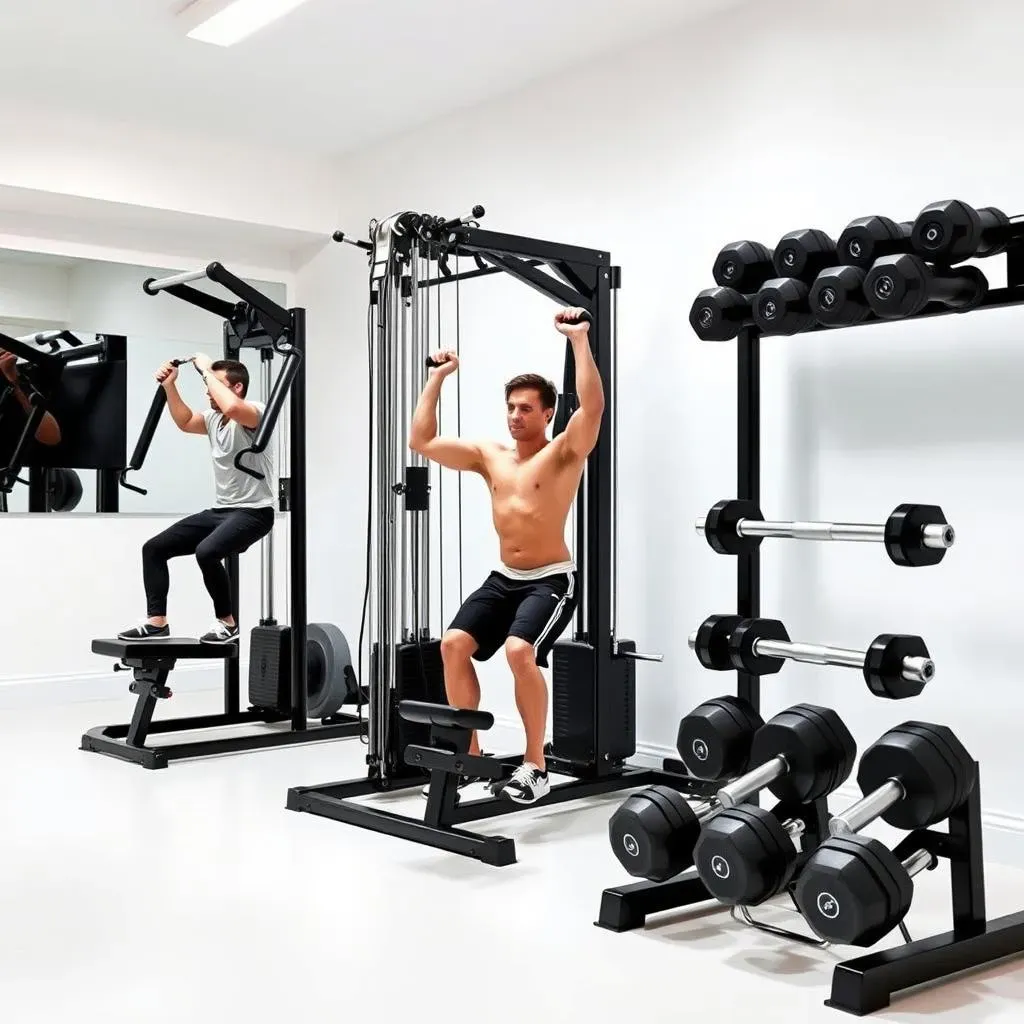
so Vectra is out of the picture, but that doesn't mean your home gym dreams are dashed. The good news is, the fitness equipment market is booming with options that can give you a similar (or even better) workout experience. We're talking about everything from multi-station gyms that mimic the Vectra experience to functional trainers that offer a whole new level of versatility. It really boils down to what you're looking for in a workout and how much space you have available.
Multi-Station Home Gyms: The Direct Descendants
If you loved the all-in-one convenience of Vectra, a multi-station home gym is probably your best bet. Brands like Body-Solid, Powertec, and Marcy offer a range of multi-station gyms that pack a ton of exercises into a relatively small footprint. These gyms typically include stations for chest press, lat pulldown, leg extensions, and more. The key is to look for a machine with a sturdy frame, smooth resistance, and a variety of exercise options to keep things interesting. I would say that Body-Solid is a great brand to look into if you want a multi-station home gym.
- Body-Solid: Known for their durable construction and wide range of models.
- Powertec: Offers innovative designs and a focus on strength training.
- Marcy: A budget-friendly option that still provides a solid workout.
Functional Trainers: Unleash Your Inner Athlete
Want to take your home workouts to the next level? Functional trainers are where it's at. These machines use cables and pulleys to allow for a wide range of movements that mimic real-life activities. This not only builds strength and muscle but also improves your balance, coordination, and overall athleticism. Brands like FreeMotion and Inspire Fitness are leading the way in functional trainer design. These are also great for doing rehabilitation exercises if you have any injuries.
What's great about functional trainers is that they're incredibly versatile. You can do everything from basic exercises like chest presses and rows to more advanced movements like rotational exercises and plyometrics. Plus, they're great for targeting those hard-to-reach muscles that traditional weight machines often miss. If you're looking for a workout that's both challenging and fun, a functional trainer is definitely worth considering.
Other Options to Consider:
- Adjustable Dumbbells: Great for saving space and providing a full-body workout.
- Resistance Bands: Portable and versatile, perfect for travel or small spaces.
- Bodyweight Training: The ultimate minimalist approach, using your own body weight for resistance.
Alternative | Pros | Cons |
|---|---|---|
Multi-Station Home Gym | All-in-one convenience, familiar exercises | Can be bulky, limited range of motion compared to free weights |
Functional Trainer | Versatile, mimics real-life movements, improves balance and coordination | Can be expensive, requires some learning curve |
Adjustable Dumbbells | Space-saving, versatile, allows for a full-body workout | Requires some knowledge of exercise technique |
Buying Used Vectra Home Gym Equipment: Risks and Rewards
Buying Used Vectra Home Gym Equipment: Risks and Rewards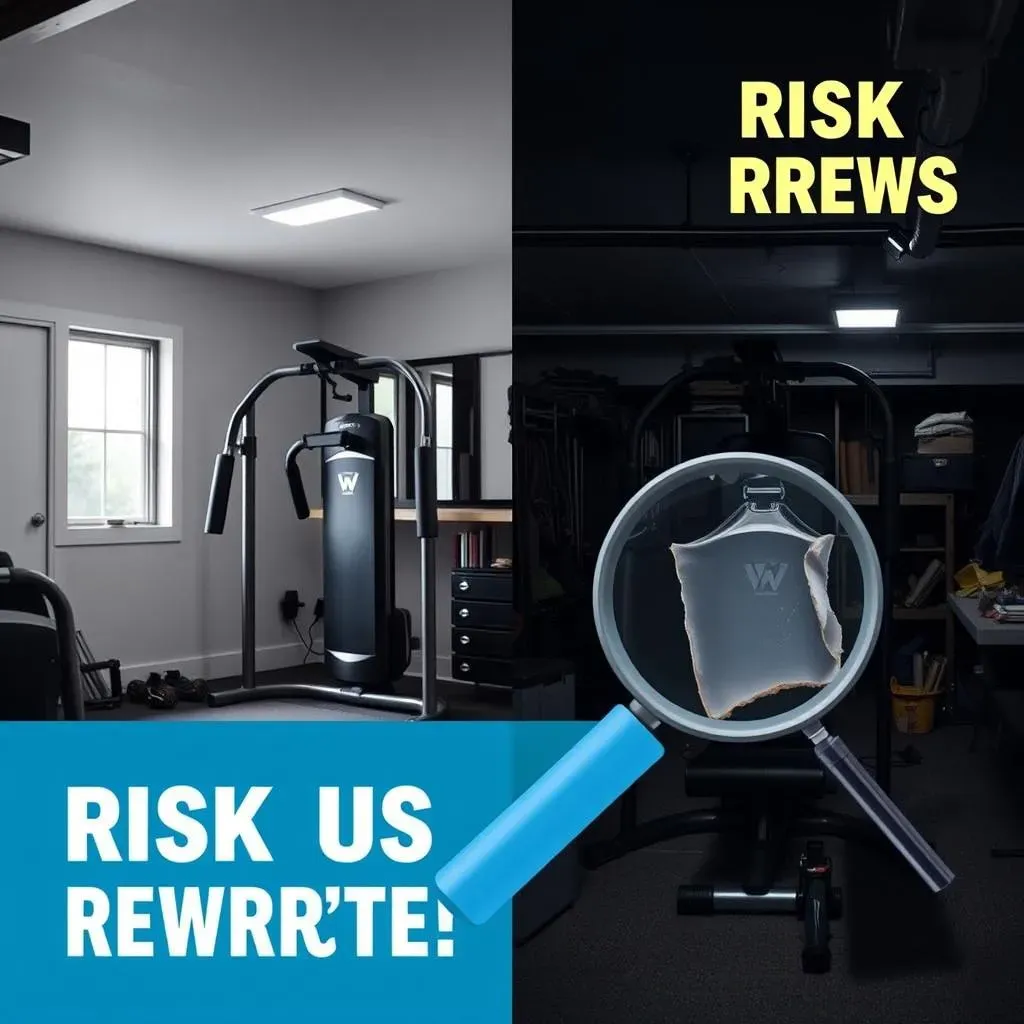
The Allure of a Second Chance: Why Buy Used?
Let's be honest, the price tag on new fitness equipment can be a major turnoff. That's where buying used Vectra home gym equipment comes in. You can snag a high-quality machine for a fraction of the original cost. We are talking about saving hundreds, or even thousands, of dollars. Plus, you're giving a piece of equipment a second life, which is always a good thing. It's like rescuing a vintage car – you're getting a piece of history at a bargain price. But, like that vintage car, you need to know what you're getting into.
However, it's not all sunshine and roses. Buying used also comes with its own set of risks. You're buying something that's already been used and potentially abused. There could be hidden damage, worn parts, or missing components. That's why it's crucial to do your homework and inspect the equipment carefully before you buy. Don't be afraid to ask questions and negotiate the price. Remember, knowledge is power!
Spotting the Red Flags: What to Watch Out For
Alright, so you're ready to dive into the used market. Before you hand over your hard-earned cash, here's what to look for. First, check the frame for rust, cracks, or any signs of damage. This is the foundation of the machine, and if it's compromised, it's a deal-breaker. Next, inspect the cables and pulleys. These are wear items, so look for fraying, cracks, or stiffness. Replacement cables are available, but it's always better to start with something in good shape. Also, pay attention to the upholstery. Tears, rips, or excessive wear can be a sign of neglect. Trust your gut – if something feels off, it probably is.
Don't be afraid to ask the seller questions about the equipment's history. How often was it used? Has it been regularly maintained? Are there any known issues? A reputable seller will be honest and transparent. Also, ask to try out the machine before you buy it. Test all the stations and make sure everything is working properly. If the seller refuses to let you test it, that's a major red flag. Finally, compare prices online to make sure you're getting a fair deal. Knowledge is key!
Risk | What to Look For | Mitigation |
|---|---|---|
Frame Damage | Rust, cracks, dents | Inspect carefully, avoid if damaged |
Worn Cables/Pulleys | Fraying, cracks, stiffness | Check thoroughly, factor in replacement cost |
Upholstery Issues | Tears, rips, excessive wear | Consider reupholstering cost, negotiate price |
The Payoff: Getting the Most for Your Money
If you do your homework and take your time, buying used Vectra home gym equipment can be a great way to save money and get a high-quality machine. But remember, it's all about managing your expectations. You're not buying a brand-new machine, so there will likely be some signs of wear and tear. The key is to find something that's in good working condition and fits your budget. Don't be afraid to negotiate the price. And if you're not comfortable doing the repairs yourself, factor in the cost of hiring a qualified technician.
Ultimately, the decision to buy used is a personal one. Weigh the risks and rewards carefully, and make sure you're comfortable with the potential downsides. But if you're willing to put in the effort, you can score a fantastic deal and enjoy a top-notch workout in the comfort of your own home. Let's be real, a little bit of sweat equity can go a long way!
The Legacy of Vectra Home Gym Equipment and What's Next
Vectra home gym equipment may no longer be in production, but its impact on the home fitness industry is undeniable. Their innovative designs and commitment to quality set a high bar, and their equipment continues to be sought after on the used market. Whether you're a die-hard Vectra fan looking to maintain your existing gym or exploring alternatives, understanding the brand's legacy helps you make informed decisions about your fitness journey. The focus on space-saving design and versatile workouts remains relevant, guiding the development of new equipment that meets the evolving needs of home fitness enthusiasts. So, while you might not be able to buy a brand-new Vectra today, the principles they championed live on in the next generation of home gyms.